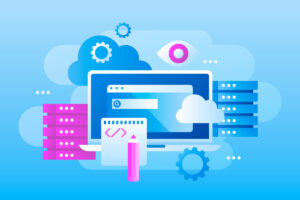PHP is a server scripting language pivotal for web development, capable of creating dynamic pages and applications. Selecting the appropriate PHP software is critical for project success, ensuring functionality aligns with business objectives and user needs. This blog will assist you in navigating the wide range of PHP software options and finding the best fit for your project.
Evaluating PHP Software: A Guide to Making an Informed Choice
1. Understanding Project Requirements
Before diving into the sea of PHP software options, it’s essential to delineate your project’s scope. This foundation establishes a clear path forward, helping to pinpoint the software’s key functionalities necessary to achieve your goals. Consider factors like scalability, desired features, and integration with other tools.
2. Exploring PHP Software Options
The PHP landscape brims with a variety of frameworks and CMS options. Frameworks like Laravel offer elegance and simplicity, whereas Symfony provides modularity, and CodeIgniter provides a lightweight solution. For CMS needs, platforms such as WordPress, Drupal, and Joomla extend their unique advantages, enabling content-centric site management with PHP as the underlying engine. Identify which software features align with your project requirements and research their capabilities to make an informed decision.
3. Assessing Software Scalability and Performance
A PHP software’s ability to scale is crucial in accommodating growing user bases and increasingly complex operations. Performance benchmarks and load testing results reveal how software candidates can handle projected demands. Also, consider future-proofing your choice by evaluating how easily the software can integrate with other tools as your needs evolve.
4. Security Considerations
With cybersecurity threats ever-looming, PHP software must come fortified with robust security protocols. A meticulous review of each option’s native security features, coupled with an understanding of potential custom security enhancements, is necessary. This step ensures the software’s safety, protects your business and its users’ data, and minimizes any potential vulnerabilities.
5. Community and Support Structures
Thriving communities and professional support can significantly ease the PHP web development journey. They provide invaluable resources for troubleshooting, updates, and toe-to-toe guidance through development hurdles. Before making a choice, explore the community’s size, support channels available, and the software provider’s approach to customer service.
6. Cost Analysis
Weighing the costs involves more than the initial outlay. Open-source PHP software may offer cost benefits upfront, but enterprises must deliberate on long-term implications, including maintenance and upgrades, to achieve a sustainable total cost of ownership. Consider consulting with experts who can help you evaluate the long-term cost implications accurately.
7. Integration and Customization Flexibility
As your business grows, so will your software needs. PHP software that allows for easy integration with other systems and customization to specific use cases is key to long-term success. Evaluate each option’s compatibility with your existing systems and its flexibility to meet your future needs.
8. Performance and Scalability
Your software’s performance is critical for your business’s success, and scalability allows it to accommodate growth without significant disruptions. Test the PHP options’ performance capabilities in real-world scenarios, paying attention to factors such as load time, response time, and resource usage. Additionally, consider how each option can handle an increase in user demand and data volume.
9. Security Measures
With the rise of cyber threats, security is a top priority for any software solution. Look for PHP options that have built-in security features and follow industry-standard protocols to protect your data and business from potential attacks. Additionally, consider the provider’s approach to addressing security vulnerabilities and their track record in handling past incidents.
10. Support and Maintenance
As with any software, regular maintenance and support are necessary to ensure smooth operation and address any issues that may arise. Evaluate the level of support provided by the PHP solution provider, including response time, availability, and expertise. Additionally, consider the cost of ongoing maintenance and if it aligns with your budget.
11. User-Friendly Interface
A user-friendly interface is crucial for maximizing productivity and decreasing the learning curve for your employees. Test out each PHP option’s interface to see if it is intuitive, customizable, and aligns with your team’s needs. Additionally, consider the training and support provided by the provider to help your team effectively utilize the software.
12. Cost and ROI
While cost should not be the only factor in your decision, it is important to carefully consider the cost of the PHP solution and its potential return on investment (ROI). Look for options that fit within your budget while still providing the necessary features and benefits for your business. Additionally, consider the long-term cost of maintenance and support when making a decision.
13. Customer Support
Without a doubt, you may get issues or questions while using PHP solutions. Choosing a provider that provides customers with reliable and professional support is critical. Find 24/7 support options, multiple communication channels, and a dedicated team of experts who can help you with any technical challenges.
Conclusion
Arm yourself with the knowledge of project-specific requirements, PHP software options, scalability, performance, security, community support, and cost implications to guide your decision-making process. With these insights, you’re well-equipped to choose the proper PHP software for your enterprise. Our team of seasoned PHP experts stands ready to help demystify the process of selecting the right PHP software for your venture. Contact us for specialized, informed guidance tailored to your project needs.












+ There are no comments
Add yours